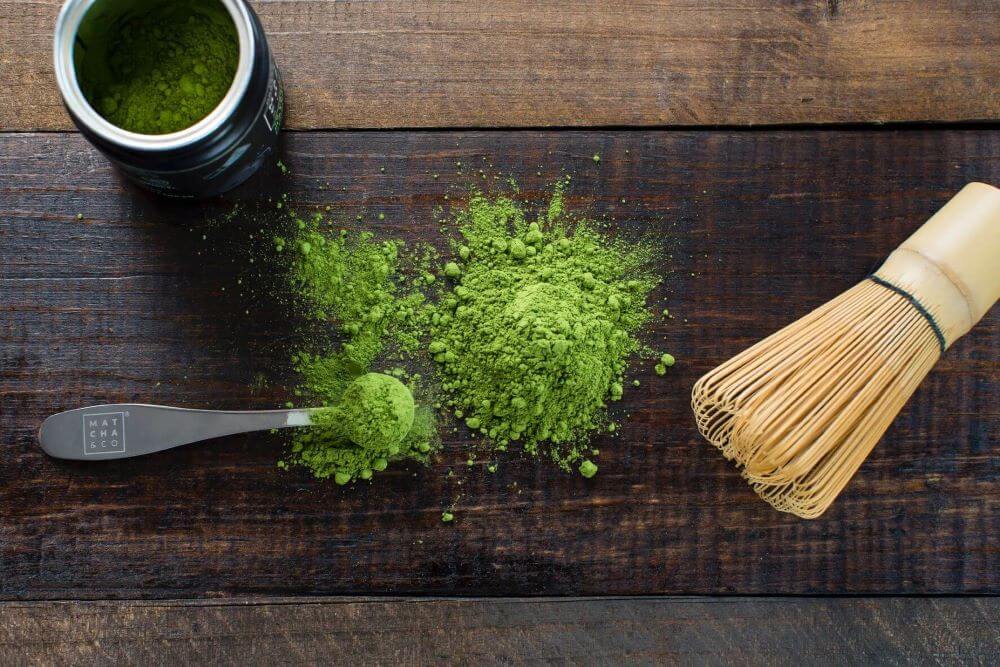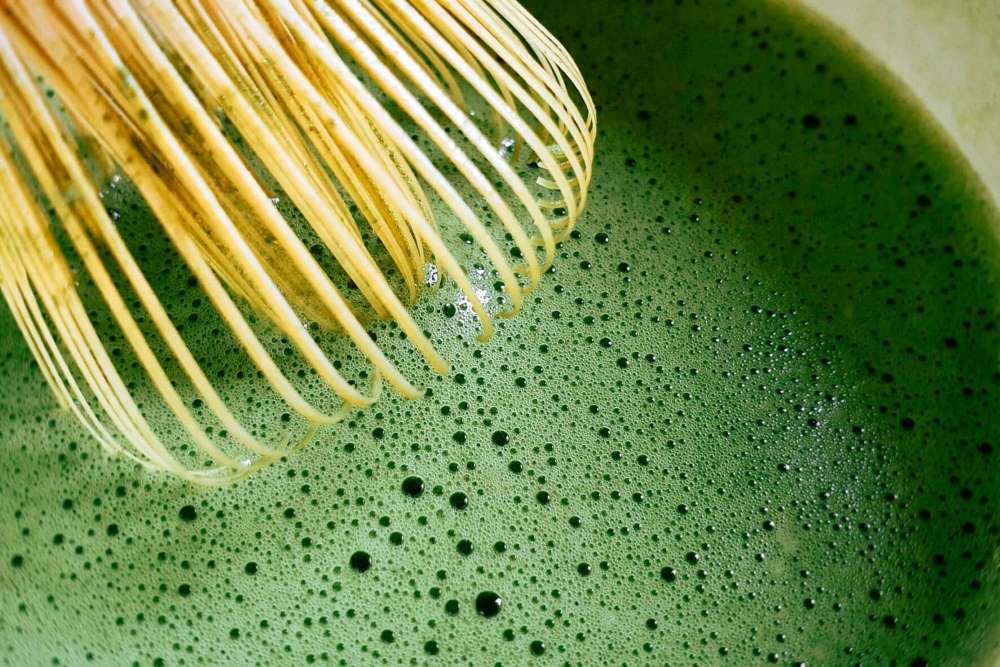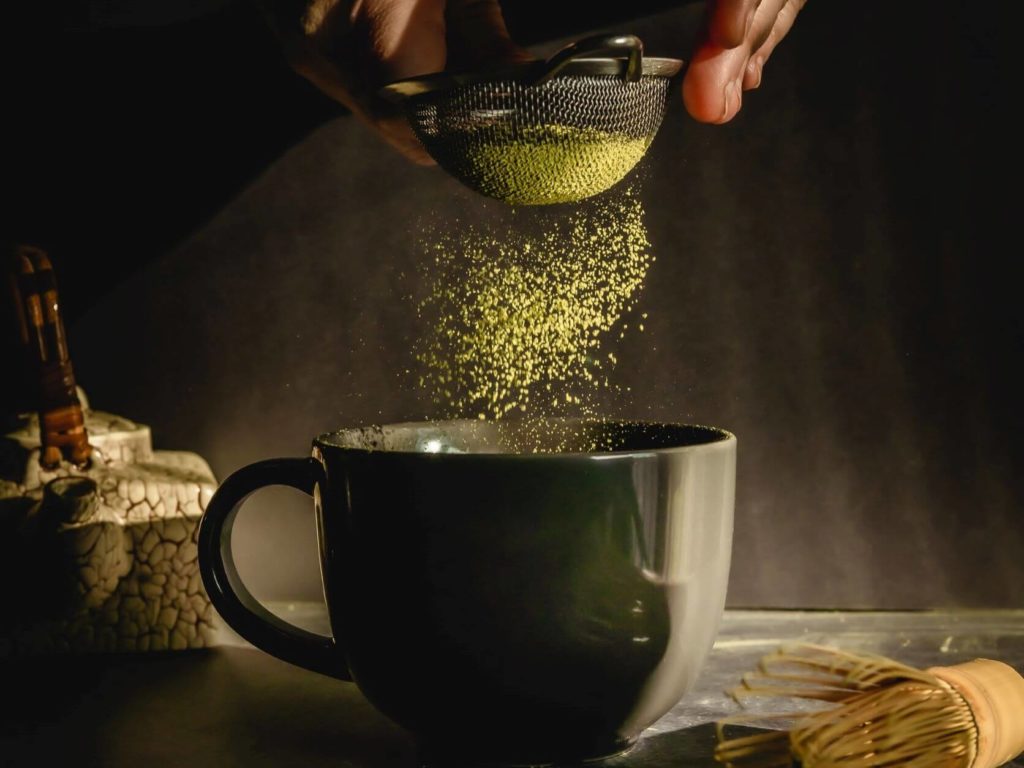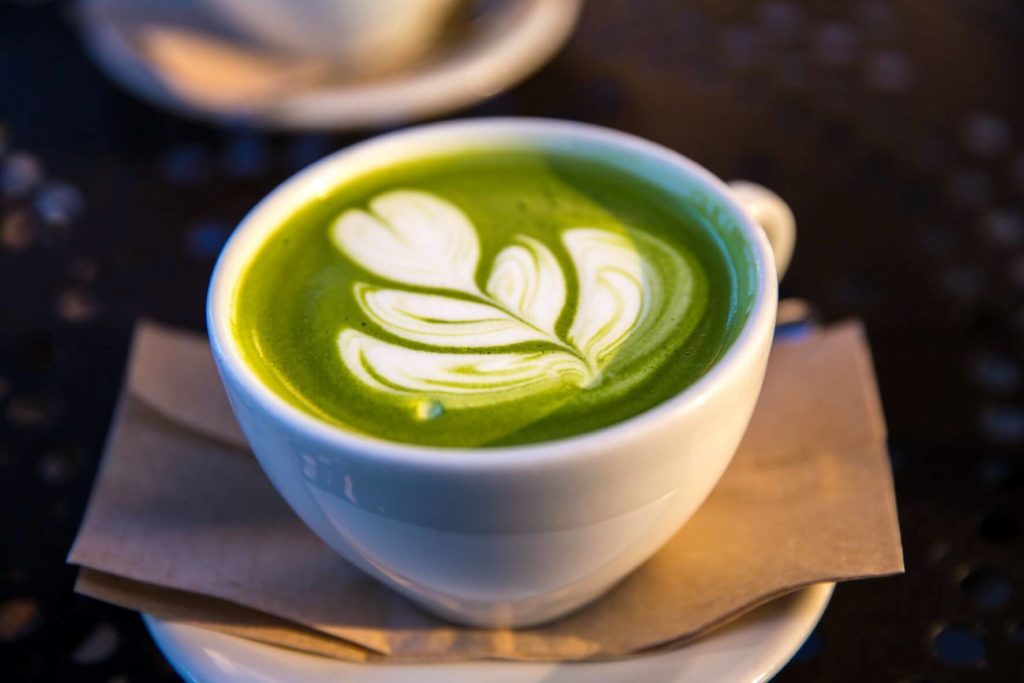Does Matcha Have Caffeine? How Does It Compare to Other Caffeinated Drinks?

Matcha green tea is becoming more and more popular these days. It is often consumed for its health benefits and delicious flavors. You can even see matcha in ice cream, desserts, bubble tea and other food and drinks.
But what many people are not sure about is matcha and caffeine. Does matcha have caffeine? After all, it looks nothing at all like other types of tea.
In this blog post, we will talk about matcha caffeine content. We’ll do so by telling you what matcha actually is and by comparing it to other caffeinated drinks. We will also explore why the caffeine in matcha provides a less jittery experience than other caffeinated drinks. Finally, we will answer some frequently asked questions about the caffeine content in matcha.
Let's get started!
What Is Matcha Green Tea?
Matcha is a powdered tea made from ground up green tea leaves. It is a true tea, meaning it comes from the Camellia sinensis plant species. This should already give you a hint on whether matcha has caffeine or not.
Matcha green tea leaves are grown under shaded conditions for 3 to 4 weeks a year, sometime between April to May. There are various reasons for this.
First, shade conditions promote the production of chlorophyll and amino acids. The former one is responsible for the darker green color characteristic of shade grown tea. Second, this suppresses the production of catechins, which can give green tea a bitter taste.
These shade-grown leaves are sometimes used to make gyokuro green tea , one the highest quality green teas.
The leaves are dried while avoiding exposure to the sun. They are then stone-ground to a fine powder using specialized granite stone mills. The leaves are delicate, so specialized equipment is needed to avoid heat build-up due to friction. This heat can ruin a matcha batch.
Unlike other types of tea, in which the leaves are steeped in hot water, matcha is consumed by whisking the matcha powder with hot water. This makes a frothy drink that is both healthy and delicious.
High grade matcha green tea powder has a bright green color, whereas lower grades of matcha tea have a more yellowish tone.
Matcha Green Tea Flavors
Matcha tea flavors are quite intense when compared to the more subtle aromas and flavors of regular green tea, such as a sencha.
The flavor is a little sweet, grassy and slightly vegetal with some astringent qualities.
The taste does vary between batches and grades of matcha. For example, high grade ceremonial matcha is made from the younger leaves on top of the plant which are sweeter and have a more delicate flavor.
Matcha tea can also be consumed cold, especially during the hot and humid summer months of Japan.

Matcha Grades
We mentioned different types of matcha grades above...so what are these?
There are three main types of matcha grades: ceremonial, premium, and culinary.
- Ceremonial grade is the highest quality and most expensive type of matcha. It is made from the youngest tea leaves on the tea plant. The leaves are hand-picked and then stone ground into a fine powder. This type of matcha is used for tea ceremonies. Drinking matcha during a tea ceremony involves admiring the tea colors, as well as the beauty of your cup of matcha. You often have it with a wagashi sweet.
- Premium grade matcha is made from slightly older tea leaves than ceremonial grade, but still hand-picked. The powder is also stone ground into a fine consistency. However, it does not necessarily meet the same high standards as ceremonial grade does so it's less expensive. These standards include color, taste, aroma, and textures - they should be sufficiently high to allow the making of koicha, which is what defines the Japanese Tea Ceremony.
- Culinary grade matcha is made from older leaves that are lower on the tea plant. These do not need to meet such high standards, when compared to the two above grades, as the powder is an ingredient that would be mixed with other ingredients during the creation of a dish.
How Much Caffeine is in Matcha?
Now that we've covered some basics of matcha, we are ready to answer some caffeine-related questions.
First...
Does matcha have caffeine? Yes, because it is a true tea from the Camellia sinensis plant. This plant naturally produces caffeine as an insecticide. For us humans, caffeine is not toxic (unless you have that entire matcha can in one single sitting by yourself...)
Now that we have established that matcha does contain caffeine, how much caffeine does it have?
Please bare with us if you hate numbers. There are many factors that come into play. We have prepared a table below summarizing our answer to this question.
On average, matcha has about 18.9 to 44.4 mg of caffeine per gram of matcha powder (1). This translates to about 63 grams per teaspoon if you pick the middle value.
To prepare matcha, you typically require 1 to 1.5 tsp of powdered matcha. So on average, a serving of matcha will have somewhere between 63 to 95 mg of caffeine!
By the way, only 2 oz of water is used to create that thick paste used in japanese tea ceremonies. However, in the West, more water is often added - about 8 oz total.
These are all estimates because there are many factors that impact the caffeine content of your matcha drink. These include.
- Growing condition of the tea (e.g. shaded vs non-shaded)
- Leaves selected to process the tea into matcha (younger vs older leaves)
- Seasonal and environmental factors
- How much matcha you put into your drink
Does Matcha Have High Caffeine Content?
We have determined that a cup of matcha has around 63 to 95 mg of caffeine.
Is that a lot of caffeine?
To see, let's compare this caffeine content to other caffeinated drinks.
For starters, matcha does not have as much caffeine as brewed coffee does. As per the USDA, a regular 8-oz cup of coffee has around 96 mg of caffeine (2). However, I've seen caffeine content go as high as 200 mg of caffeine per 8-oz cup.
For example, a 12 oz cup of coffee at Starbucks has 270 mg of caffeine (3). Adjusting this for a 8-oz serving, the caffeine content becomes 180 mg of coffee per 8-oz serving.
The caffeine content of coffee depends on many factors as well, including for how long the coffee beans were roasted for, how much coffee is used, and more significantly, whether your coffee is of the Arabica or Robusta varieties (Robusta boasts around twice as much caffeine when compared to Arabica beans).
Now let's check the caffeine content of regular tea. As you may have guessed, this number will also have a wide range given it's governed by the many factors we have listed above (and more if you're talking about different categories of tea).
Green tea has about 20-45 mg of caffeine per 8-oz serving, whereas black tea has about 47 mg of caffeine content (4).
Finally, energy drinks tend to have much more caffeine. Redbull Original has 114 mg of caffeine in a 12 oz can (76 mg of caffeine per 8-oz portion), Starbucks BAYA energy drinks have about 160 mg of caffeine per 12-oz can (107 mg of caffeine per 8-oz portion) and Monster Green has about 160 mg of caffeine in a 16-oz can (80 mg of caffeine per 8-oz serving).
Finally, the FDA recommends a maximum caffeine intake of 400 mg per day.
Popular Post: The Best Green Tea for Weight Loss: The Ultimate Guide

Let's summarize the above in a table as we have thrown a lot of numbers your way...sorry!
| Drink | Caffeine content ( 8 oz serving ) | Number of 8-oz servings before exceeding Max FDA Intake |
| Matcha | 63 to 95 mg | 4-6 cups |
| Green Tea | 20-45 mg | 8-20 cups |
| Black Tea | 47 mg | 8 cups |
| Regular Coffee | 96 to 200 mg | 2-4 cups |
| Starbucks BAYA | 107 mg (160 mg per 12-oz can) | 3 servings (or 2 cans) |
| Redbull Original | 76 mg (114 mg per 12-oz can) | 5 servings (or 3 cans) |
| Monster Green | 80 mg (160 mg per 16-oz can) | 5 servings (or 2 cans) |
Now let's circle back to our original question...
Does matcha have high caffeine content?
Based on our research and comparison, matcha has a moderate level of caffeine.
It has less than almost all coffee drinks, and significantly more caffeine than regular teas.
Surprisingly, matcha drinks could have more caffeine per unit of volume than some energy drinks like Redbull Original or Monster green!
This is good news for green tea drinkers who are looking for a bigger energy boost. Matcha green tea is your answer!
Why Caffeine In Matcha Provides a Less Jittery Experience?
Matcha provides a less jittery experience than coffee is because the L-theanine amino acid is present in matcha. This amino acid helps to offset some of the negative effects of caffeine. It does this by promoting relaxation without causing drowsiness.
In other words, the caffeine from other drinks is absorbed faster by the human body in absence of the L-theanine amino acid. This results in a shorter, more intense "caffeine high" with a sharp drop after the peak of the effects. This is the infamous caffeine crash we've all heard of.
Why Does Matcha Have High Caffeine?
The high caffeine content in matcha is a result of the shading process the green tea plant leaves go through. The leaves are shaded for the last few weeks of their growth, which increases the level of caffeine and L-theanine.
Another reason is that you are consuming the whole tea leaf, as it is ground and mixed in water. Other teas are an infusion, and you certainly don't eat the leaves!
By the way, if you’re looking to reduce your coffee intake while still enjoying the benefits of caffeine matcha is a great alternative. There are more high caffeine teas, so make sure to check our high caffeine teas post!
Related Read:
Frequently Asked Questions
What is caffeine?
Caffeine is a stimulant that occurs naturally in coffee, tea and chocolate. It helps to increase alertness and energy. Plants use it as a natural pesticide; caffeine can paralyze and kill any insects feeding on the plant.
Does matcha contain more caffeine than coffee?
No, matcha does not contain more caffeine than coffee. The caffeine content in matcha is moderate when compared to other caffeinated drinks. Coffee has about 95 to 200 mg of caffeine per 8-oz serving, whereas matcha has about 63 to 95 mg of caffeine.
Is there such a thing as decaf matcha?
Yes, there is such a thing as decaf matcha. However, the majority of matcha on the market does contain caffeine.
Can I mix matcha with milk or water?
Yes, you can mix matcha with milk or water. However, it is recommended that you do not add milk until the drink has been whisked. Matcha latte is one of my favorite drinks!
Is the caffeine in matcha bad?
No, the caffeine in matcha is not bad. It is the same substance as the caffeine found in coffee and chocolate.
However, matcha has L-theanines that helps to promote relaxation and counteract the jitteriness of high caffeine intake.
Is matcha better than coffee for anxiety?
Yes, matcha contains less caffeine so it's less prone to these caffeine side effects. Further, the L-theanine present in matcha may help to offset these negative effects. However, if you're looking to reduce anxiety levels we recommend avoiding caffeine. Check our post about the best teas for anxiety.

Bottom Line
In conclusion, the caffeine content in matcha is moderate. It has less than almost all coffee drinks, and significantly more caffeine than regular teas.
The L-theanine amino acid in matcha helps to offset some of the negative effects of caffeine and provides a less jittery experience than coffee. Matcha also has a high caffeine content because the leaves are shaded for the last few weeks of their growth, and you are consuming the entire tea leaf.
Let us know if you have questions in the comments
Enjoy!
This article is intended for informational purposes only. It is not meant to replace professional medical advice, treatment or diagnosis. Do not consume any type of coffee, tea or herbal infusion if you are allergic to it. The information in this article is not intended to treat serious medical conditions. Please seek professional medical advice before using home remedies.